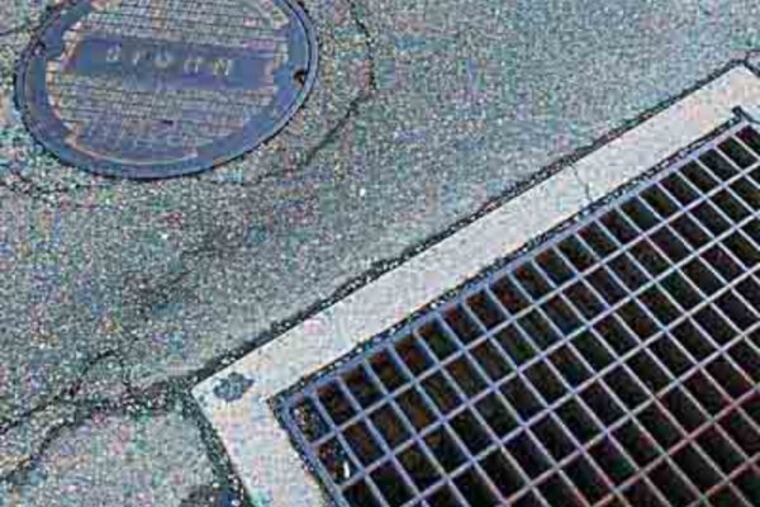PA gives grants, loans to Del.-based corporations
It’s called the “Delaware loophole” and is used by corporations of all shapes and sizes to avoid taxes.

But Pennsylvania adds a little bit of insult to the taxpayer injury: Some companies registered in Delaware, the East Coast version of Bermuda when it comes to tax advantages, are getting taxpayer-funded awards, grants and other incentives to do business in the Keystone State.
It's called the "Delaware loophole" and is used by corporations of all shapes and sizes across the county to avoid taxes.
In Delaware, companies don't have to pay taxes on certain pieces of their companies – like logos, trademarks or patents. A business may register a sister company in Delaware to hold the rights to these, and then pay to use them. That transfer gets written off as a business expense, reducing the company's tax burden.
In Pennsylvania, the loophole is a bane for tax-fairness advocates who say it allows companies to escape the state's high corporate taxes by transferring money to a shell company — actually holding companies — registered in neighboring Delaware, a state where business-friendly taxes and laws create an appetizing atmosphere.
Pennsylvania has given grants, tax breaks and publicly funded loans to some of the very same companies that may be taking advantage of the Delaware loophole.
And that makes State Rep. Scott Conklin, D-Centre, an outspoken critic of the Delaware loophole, furious.
Two Delaware-registered companies received state awards in June, totaling more than $1 million in taxpayer-funded awards meant to spur job creation.
Take the case of Summit Aerospace. The state announced on June 11 that the state-controlled Pennsylvania Industrial Development Authority authorized a $720,000, 15-year low-interest loan to Summit, a jet- and helicopter-parts manufacturing company. Summit said it would invest $1.6 million in Monroe County to renovate a 16,200-square-foot facility in Coolbaugh Township, create nine new jobs and retain 13 employees.
Summit has its corporate headquarters at 1209 Orange St., in Wilmington, according to the Delaware Department of State. The address is home to tens of thousands of companies, including the likes of General Motors and Coca-Cola, despite its 40 parking spaces and pedestrian appearance.
A spokeswoman for Summit said the company has not officially accepted the loan. Additionally, the company was acquired by Plainville, an Ontario-based company, last June, meaning changes could be on the way as Summit grows its business presence in Pennsylvania .
She also said the award system has safeguards in place to make sure any company receiving state money does not have any outstanding tax obligations to the state.
"It is during the application, contracting and disbursement processes that the DCED program offices will check to determine whether or not the applicant has any outstanding obligations with the commonwealth," Frank said in an email. "The system has hard stops built into it that will halt the contracting or disbursement processes until sufficient evidence, in the form of a clearance certificate provided by the state department holding the obligation, has been provided by the applicant."
But moving money around through the Delaware loophole wouldn't be seen as an outstanding obligation, because that would not get reported in the state's tax records.
Still, some estimates say the loophole causes Pennsylvania to lose as much $450 million a year in tax receipts.
Flowserve Corp., a Fortune 500 company that sells oil and gas equipment, is headquartered in Texas, but records with the Pennsylvania Department of State show Flowserve is registered in Delaware.
Delaware's Department of State records show Flowserve is also doing business at 1209 Orange St. in Wilmington, Del.
Flowserve representatives did not return multiple requests for comment.
In 2009, The Guardian took a hard look at Delaware's advantages, and talked to the people behind the mystifying Orange Street address. Jerry Daniel, vice president of government relations at the Corporation Trust Co., said at the time the office is a mailing address that allows companies to operate under Delaware law.
Pennsylvania's Secretary of Revenue Dan Meuser, whose background is in private-sector business, said all companies have reasons to register in the states they do.
Meuser estimated 50 percent of businesses across America might have a piece of their company located in Delaware.
"There are some very legitimate reasons for that," Meuser said. "Patent protection, certain legal protections that exist, ease of becoming a corporation."
His department, he said, thoroughly investigates any company suspected of scamming Pennsylvania taxpayers.
Meuser said he was encouraged when House Bill 440 won approval earlier this year. It's a Republican-backed proposal that claims to close Pennsylvania's Delaware loophole by requiring new state-tax reporting standards.
Multi-state corporations would have to "add-back" any transactions made from Pennsylvania to other state subsidiaries to ensure the transaction aren't being made to reduce in-state tax liabilities.
Proponents of the bill say such "add-back" laws have successfully stopped the problem in other states, including Maryland,North Carolina and Wisconsin, and it would bring in an extra $90 million a year in business taxes that otherwise go uncollected.
Meuser said the administration supports the bill, which also includes corporate tax reductions in other areas.
"It makes it unlawful to establish a business or subsidiary or withholding company in any state for the purpose of lowering your taxes," Meuser said. "So that's very important, and it's a big step in the right direction."
The bill is awaiting a vote from the Senate Finance Committee, and could be part of the negotiations as lawmakers finalize the state budget before June 30.
"My issue with the Delaware loophole is it creates an unfair situation for companies that do not avail themselves of those tax avoidance schemes," Mundy said. "I do find it problematic that we give grants or loans or tax credits to companies that are Delaware loophole companies, but overall, we need to close that loophole."
Contact Melissa Daniels at melissa@paindependent.com